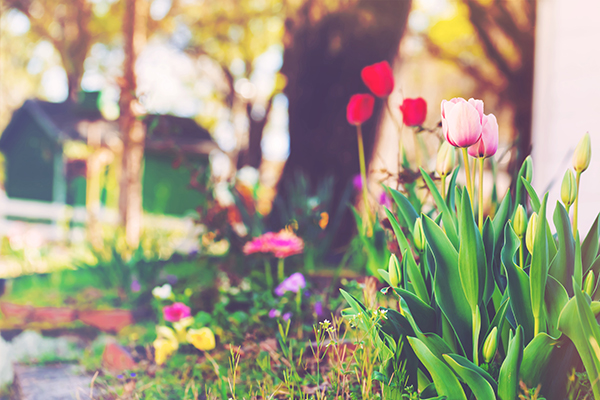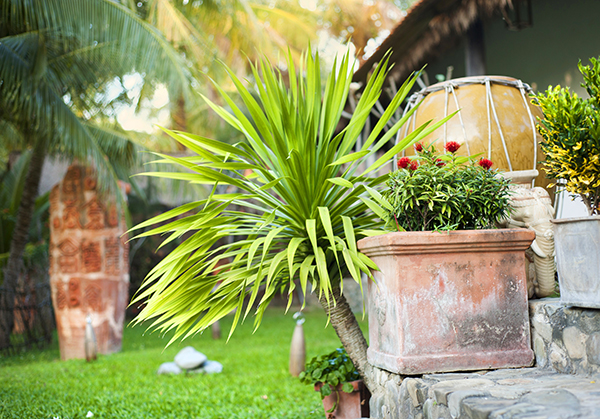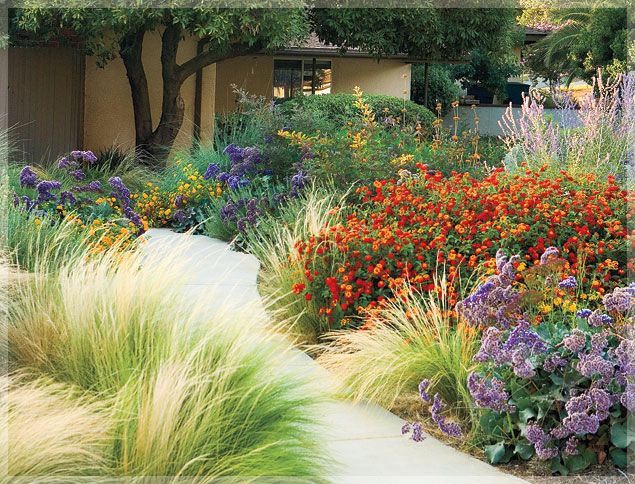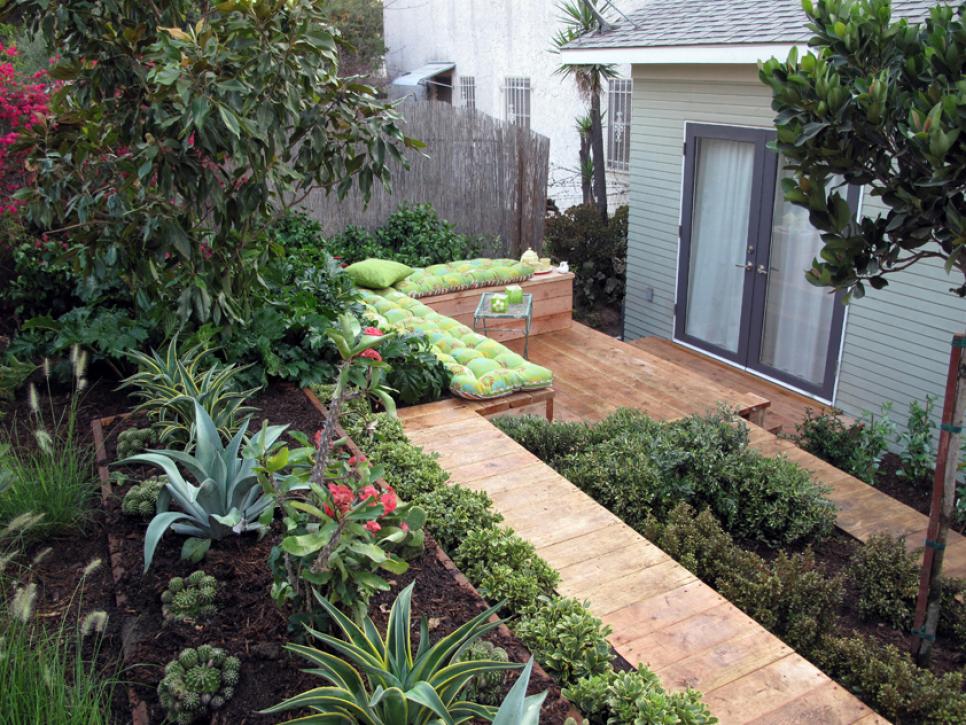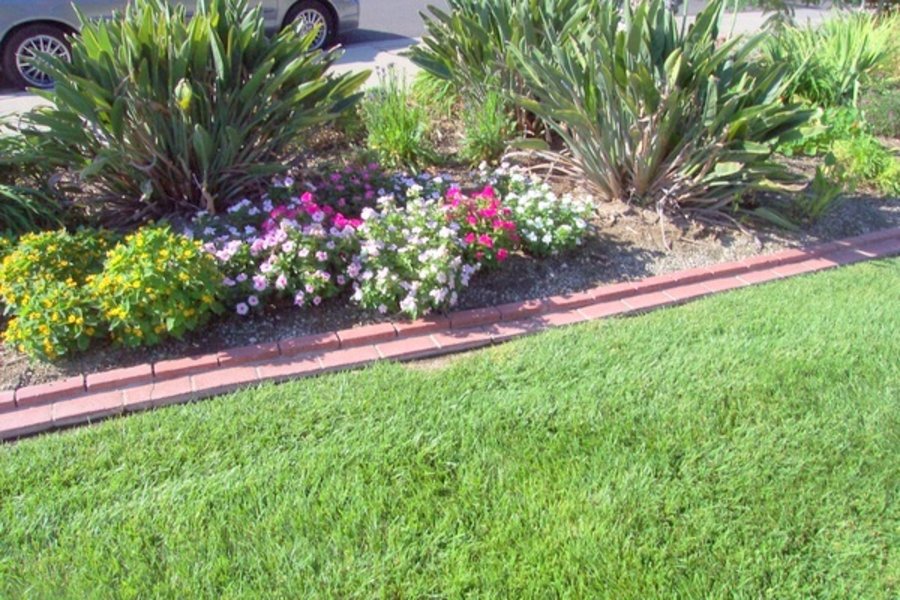Gardening – The Perfect Social Distancing Hobby
Need a new activity that incorporates fresh air, relaxation, and keeps you close to home? Consider gardening. Nothing takes you back to childhood like putting your hands in the dirt; and nothing makes you feel more like a superhero than partnering with Mother Nature to create something beautiful or great to eat. Don’t worry if your thumbs aren’t green, it’s a simple combination of sunlight, soil and water and the secret to success is that Mother Nature does most of the work! Here are some great tips to know what to plant, where to plant it, and how to begin while avoiding common gardening mistakes.
Assess your space
Sunlight will be your most important factor because Mother Nature has total control. Spend a few days assessing how many hours of direct sunlight or shade your chosen space gets on an average day. Know that this will change throughout the year as the earth moves around the sun, your space may get different amounts of sunlight in different months.
Dig in! Take a look at the natural soil in the space where you plan to garden. Plants often love dark, rich soil but a surprising many can thrive in sandy, rocky dry ground as well. The good news is, you can change and improve your soil or its quality so it’s not a limiting factor.
In Southern California, we can have spells of crazy rain, but we’re mostly a sunny, dry, arid climate and we’re always looking to conserve water. While water is a resource you can often control in your garden, it’s a good idea to focus on plants that are either native to the area or drought tolerant.
Start Small
Planting pots are a great way to start if you want to try your hand at gardening or you don’t have room for planting beds in your outdoor space. Pots come in all shapes, sizes and colors and can be made of anything from ceramic to plastic to metal. Deck boxes are another option and are made to hang either over your deck railing or secured to the top of it. Planting pots or boxes can make a beautiful perimeter to your space.
Determine your commitment level and choose annual or perennial
There are two common types of plants and your choice can depend on your commitment level, especially if you’re new to gardening. Annuals are plants that are meant to last one growing season and then die off. If you’re successful with annuals the first year, this just builds confidence and helps you become more adventurous the next year. If you’re not as successful, it feels easier to start over with something different the next year. Many fruits and vegetables and some types of flowers are considered annuals.
Perennials are plants that will bloom and flourish during the growing season, but are able to withstand the colder temperatures of winter and come back year after year. These include trees, many leafy plants, shrubs and ornamental grasses. Many gardeners use a combination of both types; annuals for a pop of color that you can change up year over year, and perennials for year round greenery.
Herb Gardening
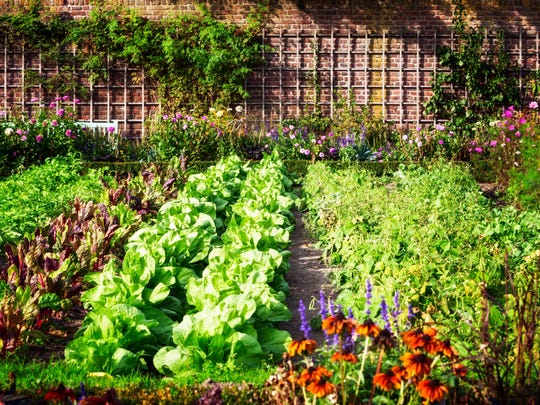
Herbs are a fantastic foray into edible gardening, especially in Southern California. They love the hot sun, need less water than other plants, aren’t bothered by insects and often thrive when neglected. Herbs can be annual, biennial (having a 2 year growing cycle or lifespan) or perennial and the ones you grow yourself are much cheaper and more flavorful than dried herbs from a store. Many herbs like rosemary, thyme, oregano and mint also make great landscaping plants that grow year round and provide a nice color and texture to any space.
Edible Gardening
Edible gardens (fruits and vegetables) tend to need more space and more consistent hours of daily sunlight; but can be very rewarding. Believe it or not, edible gardens can start when the weather still feels quite cold. Many lettuce varieties, spring onions and radishes can begin to grow when the weather is as cool as 40 degrees. You can grow from seeds but you can also buy “starts” that are partially grown and you simply transplant into your own space. Fruits and vegetables love nutrient rich, loose soil and the plants need room to grow so follow seed or starter instructions to ensure they’re not over crowded. Edible gardening is a fun and educational activity to share with your kids and a great way to ensure you’re getting local and organic produce.
Flower Gardening
Flowers are a beautiful addition to small pots and planters as well providing colorful relief in any landscape. Thinking back to your grandmother’s prized rose garden, it’s easy to imagine all flowers are finicky or difficult, but this just isn’t true. While some varieties can require more time and care, many are easy to grow. In Southern California, several types bloom year round and our growing zone even supports some tropical flowers. Don’t forget that many perennial shrubs and leafy plants also flower and provide amazing color in different seasons.
Avoid common mistakes
Back to the three main elements of gardening; sunlight, soil, and water. The most common mistakes have to do with either too much or too little of any one of these, or simply choosing the wrong plant for the growing conditions of your space. A local plant nursery is one of your best resources because they stock the plants that are known to thrive locally and in the current planting season. In addition, they are knowledgeable and usually passionate about discussing your particular garden space and conditions and can offer advice. Buying plants online is another good option if you pay attention to growing zones.
Another common mistake is to crowd too many plants into a space. Plants love a little room to grow and spread roots and spacing makes watering and weeding easier. Pay attention to the mature height and width listed on the plant label and space accordingly. While your space may look sparse when newly planted, resist the urge to over crowd and imagine how the entire space will fill out in three years after each plant has reached maturity.
Local animals and pests can also have an impact on your plants. Deer, rabbits and slugs love to munch on certain types of plants and can obliterate an entire row of plants overnight. Aphids and other insects can also kill certain plants or cause disease. There are many ways to naturally deter these animals and pests without harming other plants or domestic animals. Always look for the safest and least toxic alternative.
Gardening can be an amazing way to feel the freedom of the outdoors, relieve stress, and gain the ultimate satisfaction from your efforts. It doesn’t have to take a lot of time or space to create beautiful color, something fresh to eat, or a highlight for your outdoor space. Happy gardening!

